The Future of Work
Written by Quantum Study Club on 18.11
Cuplikan Kuliah Prof. Thomas Malone
hmm and start with introducing professor tom malone keys the patrick j mcgovern professor of management at m i t sloan and he's the director of the center for coordination science professor malone will share with you some of his recent research about a new technologies and mentioned will change the way work or be organized in the future so without further ado professor malone ... so good morning ... however how many of you were ever a student in my class that m i t ... okay that's great it's great to see again i'm going to start with asking a question that i used ask and so my classes i noted you or this question is how many of you are happy this morning raise your hands if you're happy this morning ... okay that's good and how many of you are not happy this morning ... and body ... how many have not yet raise your hand ... how many it's a sleet even hear the question yeah okay well good for anybody unhappy at ask huge your the mom put this is one of the happy as audiences i've ever spoken today so that makes me even happier ... what i like to do this morning is tell you a little bit about what's in my a recent book it's called the future of work how the new order of business will shape your organization your management style and your life ... fact would like to start with is by giving you the entire story of the book about two minutes ... i think we are in the early stages of the change toward much more human freedom in business ... and i think this change maybe as important for businesses as the change to democracy as men for governments ... the reason i think that's happening is because it's now possible for the first time in human history to have the economic benefits of very large organizations things like economies of scale and knowledge and at the scene time to have the human benefits of small organizations things like freedom flexibility creativity and motivation ... the reason i think that's possible is because information technology has now reduced the cost of communication to such a low level that it's now possible for huge numbers of people even in very large organizations to have enough information to make sensible decisions for themselves instead of just following orders from someone above them was supposedly knows more than they do and them as what hierarchy ... so what's the technology that makes this possible ... but the thing that will actually shape how these changes occur is what we humans want ... so if you want to predict and especially if you wanted shape how these changes will unfold over the coming decades i think you need to think much more deeply than we usually to about what's really important to you ... that's the whole book and you questions ... oh well if i were basic give you a very clever answer i guess i should say if you get the book itself there will be much more useful than what i just said ... let me give you a couple of examples to illustrate the points i just
.....
it's an online encyclopedia that anyone can look at for free ... the name we keep by the way comes from the whole and word for quick but the thing that's really unusual about this encyclopedia is not just that you can look at it for free but you can also change ... if you could go back to your office or your house as soon as this program is over ... find the wikipedia online and make any change you want to and the sunlight encyclopedia you could add an entry for yourself you could change the entry for m i t you could add entry for the sloan school of management you could do anything you want and so could anyone else in the world ... so how could that possibly work ... well part of what makes it work is that the system automatically keeps a list of recently changed pages and the people who were frequent contributors to this encyclopedia are always watching that list and whatever they see something that they think looks wrong or questionable the their fixed it immediately or put it on another list of pages that need attention ... so over time it gets better and better ... in fact this encyclopedia only started in the year two thousand and it already has over two hundred and twenty thousand articles ... now it's probably not as good yet as the encyclopedia burt an account but it is surprisingly good a lot of journalists i know actually use this as their first stop where they want to find out about something they'd look first to the week e p a and then may look at other places ... so this i think as an example of the two things i just set it's got huge amounts of freedom anyone in the world on the internet can be in encyclopedia author or encyclopedia editor and basically do anything they want with this encyclopedia ... and at the same time coupled with that freedom is global scale they're able to draw up on a global base of people to contribute to this encyclopedia and of course they have a global audience for the results they produce question ... and ... yeah oh i'll bet ... well in the case of water you get your out broad buy things it's only there's one look at and so you have some people to interpret a lot more than others in general that's probably a good thing the thing that is a potential problem for wikipedia is people who are intentionally trying to analyze ... and as you can guess there's nothing directly to stop you from going in and try rushing things instead of tried to make them better so they basically have several lines attack for that first is if it's just an on intention or mild thing than someone else picks isn't but as somebody repeatedly tries to trash things over and over then they eventually block there i p address so that person can easily come in again unless they get a different i p address in the few cases where somebody keep doing that over and over basically they they run things the next bills bit they get fixed and then they rent them and they get fixed and a tool a gets kind of boring so they basically stop bother so it's an interestingly robust system and that's that's ... okay so okay one more question of your your the
.....
good question how could you insure that is accurate well how'd you know that the information the encyclopedia of return occur soccer ... that has a reputation for being generally accurate reasonably well deserved in this case you can be sure that every single thing there is accurate but in general it's pretty good ... so you can be positive but the can be positive of anything in this world ... well that you might be saying this is a weird little example a bunch of where people want to sit around all day writing it's like a p is it's not even a business what is this have to do with business so my second example is one of the most successful businesses of the last decade ... it's ebay ... ebay it's you know provides a global infrastructure for auction zero all kinds of things toys antiques cars computers real state all kinds of things over two billion dollars of revenue ... and of millions of active buyers and sellers ... what most people don't realize is that about a hundred and fifty thousand of those buyers and sellers are people who make their full time living from selling on ebay ... now if those people were actually employees of ebay ... ebay would be the fiftieth largest private employer in the country ... but they're not employees they're essentially independent shop key birds ... there like small store owners and as such they have all the freedom of a small store owner ... they get to use their own creativity their own energy to decide what to sell wind
.....
global audience for what they're so ... so does because you can do this into cases or just because it's happening into cases that doesn't mean it's going to happen everywhere so why do i think this is going to happen in more and more places i don't think you'll happen everywhere by the way but i think this kind of thing will happen more and more ... there's a detailed argument in the book for why i think that's happening but the basic idea is fairly simple ... the basic idea is that there is a common pattern and the ways human organizations are structured and how they've all that appears to be playing out in businesses today ... that pattern the first occurred however not and businesses but in the ways human societies were organized ... loosely speaking human societies have gone through three stages in their organization ... for most of the time humans have existed on earth they we they supported themselves by hunting and gathering and they live to in small decentralized e gal a terry in groups which anthropologist call bands ... then starting about twelve thousand years ago we begin to see the rise of bigger and bigger societies countries nations ... ruled by centralized rollers with names like chiefs a purse dictators and kings ... that continued that way of organizing society continued for almost all of recorded human history until only about two hundred years ago when the third major way of organizing societies began to spread on a large scale that was democracies ... know
.....
it's not one or the other is just balancing the relative risk send the relative rewards of the different situations it's also true that having more capital gives you more margin for more opportunities to try lots of things even a some of them fail that isn't necessarily always at the level of a single company for instance ... better capitalist says you know invest in a portfolio of companies in the expectation that you know say one at of two and we'll make it rich enough that it makes up for nine failures ... the a whole economy place that game as well so the whole the comma as a whole was constantly experimenting with lots of little companies if you'll which succeed many of which don't but the economy as a whole has enough in capital to keep investing in more and more so you can always look at it from the point of view of one single company or one single entrepreneurs and the other thing to consider is even from the point of a single individual ... if if you try one company and it's not successful ... you're not dead and you often have the of gender to try other companies so you may not have unlimited financial capital but you may have more human capital then we assume when our mind is fixed aided on only one single company ... oh okay and and okay ... so ... yeah corporate ... and his





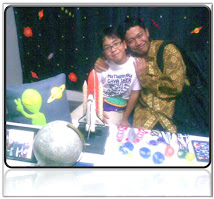
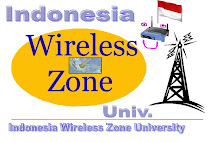









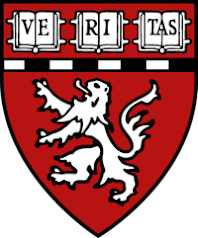


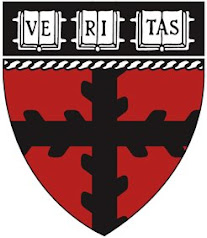
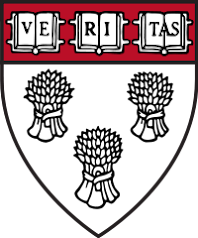



0 comments: Responses to “ The Future of Work ”